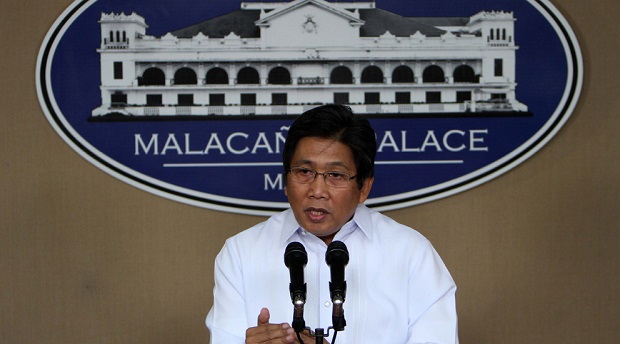Palace shrugs off China offer to talk
Malacañang on Wednesday brushed aside China’s call for the Philippines to drop its South China Sea case with a United Nations international tribunal and instead enter into bilateral talks with Beijing.
“Having presented our case before the Permanent Court of Arbitration, it is imperative that we pursue this course of action to its full fruition,” said Presidential Communications Secretary Herminio Coloma.
“The Philippines affirms its adherence to international law and preference for rules-based resolution of maritime entitlement issues,” he said.
Hua Chunying, the Chinese foreign ministry spokesperson, urged the Philippines to “come back to the right track of resolving disputes through negotiation and consultation.”
She said China “will never accept the unilateral attempts to turn to a third party to solve disputes.”
Beijing, which contends that the tribunal, based in The Hague in the Netherlands, does not have jurisdiction over the case, has refused to participate in the proceedings, which operate under the UN Convention on the Law of the Sea, or Unclos.
Invite to explain side
Assistant Secretary Charles Jose, the Department of Foreign Affairs spokesperson, said the five-member arbitration panel had “asked China to participate and we continue to extend the invitation for them to explain their side.”
Last Monday, the Philippines wrapped up its oral arguments against the validity of China’s nine-dash line claim to the South China Sea and on the status of several maritime features in the West Philippine Sea.
Hearings on the arguments will start if the tribunal rules it has jurisdiction over the case.
The tribunal gave the Philippine lawyers until July 23 to give their written submission to amplify their answers to questions raised by individual members of the tribunal.
In a statement on its website, the tribunal said it had entered its deliberations and was aware of its duty to conduct proceedings to “avoid unnecessary delay and expense and provide a fair and efficient process.”
Unclos, also known as the Law of the Sea Convention, is the international treaty that defines the rights and responsibilities of nations with respect to their use of the world’s oceans, establishing guidelines for businesses, the environment and the management of marine natural resources. The Convention, concluded in 1982, replaced four 1958 treaties came into force in 1994.
